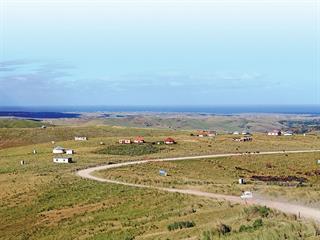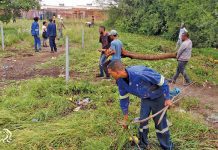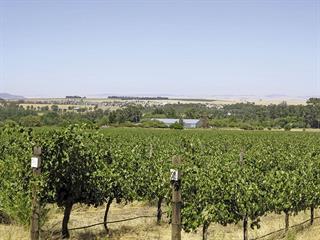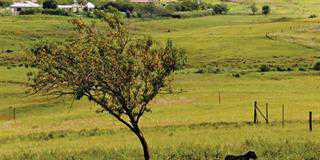
One could be forgiven, as a driver, for thinking that the impoverished residents of Centane have been left behind and forgotten by the rest of South Africa. To reach this deep rural community between the small town of Kentani and the Wavecrest Hotel in the former Transkei, it is necessary to negotiate – with painstaking care – 35km of dusty, heavily rutted, potentially tyre-shredding road.
For whatever reason, these people have been bypassed while socio-economic development has taken place elsewhere in the country. They live on communal land owned by the government but administered by their local traditional councils. This situation may be about to be reversed, thanks to a project – the Centane Agricultural Initiative (CAI) – undertaken by a private-sector womens’ empowerment company and its supporters.
The CAI is the brainchild of Gloria Serobe, a founder and executive director of 21-year-old Women’s Investment Portfolio Holdings Limited (Wiphold). Serobe has a personal interest in the project – her ancestors hail from the community – and her company and its financial partners are providing backing to the venture. The CAI proposes to provide Centane’s residents with a sustainable future through implementing commercial farming practices, and aims to restore self-respect and dignity to the community.
Growing success
“Wiphold initially invested in a CSI [corporate social investment] agricultural project in the Centane area over the 2012/2013 summer,” explains Serobe. “We facilitated the planting of 60ha of dryland maize there. Profits from the harvest were distributed to the community members who had provided communal land for the maize crops. This was highly successful.
Because other community members wanted to join, over the 2013/2014 summer Wiphold facilitated the planting of, and distribution of the profits from, [a further] 340ha of dryland maize.” Wiphold is keenly aware of the need for sensitivity and understanding of the customs and values of the traditional authority in the areas in which it operates. It was for this reason
that the investment company dedicated significant time to initial consultation with Centane’s 13 traditional leaders, their councils and local residents, before embarking on the two CSI agricultural projects that led to the establishment of the CAI.

Part of the team that is steering the Centane initiative in rural Eastern Cape (from left): Samson Tauzeni (Technoserve: Eastern Cape manager), Pinky Matanzima (Wiphold: Eastern Cape project manager), Gloria Serobe, (Wiphold executive director), Debra Marsden (Wiphold: head of transformation and corporate affairs), and Andile Mtukushe (Wiphold: Eastern Cape assistant project manager).
Previous maize success confirmed
“The CSI projects provided Wiphold with an opportunity to find out more about Centane’s residents, what their circumstances were, and what their aspirations are. We found dignified people who just did not have the means to better themselves,” explains Serobe.
In its research, Wiphold found that the Centane area forms part of what was historically a highly productive dryland maize farming belt, capable of achieving between 8t/ ha and 10t/ha if the fertile soils and crops are correctly managed. In fact, many of the rolling grassland hillsides around Centane still bear visible signs of contours made by successful commercial farmers before the formation of the Transkei homeland.
Following the establishment of the Transkei, these lands either reverted to natural grasslands for communal grazing or were used to a much lesser extent by Centane’s residents for subsistence crop farming.
A no-nonsense approach
Following the production successes with the two CSI projects at Centane, and after extensive discussions with Centane’s wider population, Wiphold and the area’s leaders and residents agreed on a plan to develop the CAI. Wiphold was concerned that it would be carrying a large financial risk in getting the CAI started, and Centane’s residents therefore committed to doing whatever was needed to make the commercial crop farming initiative a success.
“We’re not handing this initiative on a platter to Centane’s people,” stresses Serobe. “Wiphold, together with additional funding that it has sourced from other partners, may be providing resources to Centane to get the CAI going, but the various communities within Centane know that it is up to them to use and protect these resources.
“Wiphold has already shown one community in Centane who had neglected its commitments that we’re serious about protecting our investment. That community is no longer part of the CAI and the other Centane communities are aware of this,” Serobe says.
The remaining Centane communities are eager to participate in the CAI, and have already demonstrated their commitment by developing a system whereby each family in a community allocates one member to a team that erects and maintains fences around the croplands.
Debra Marsden, Wiphold’s head of transformation and corporate affairs, adds that these communities have each established a committee for their particular block of land allocated for crop production within the collective CAI. Furthermore, members of each of these blocks are contributing towards a fund for hiring local people to provide 24-hour security for the fencing around, and the crop within, each block.
Every centane resident benefits
After discussions with traditional leaders and the Centane communities, it was decided that it would be unfair for only those communities with suitable arable land to benefit from the CAI. Instead, all residents of Centane would benefit materially and financially.
“With white maize being the primary crop produced by the CAI, it was agreed by all that the community members who actually allocated their croplands to the initiative should, out of fairness, be paid a land-use fee for this land. This ranges from five to ten 40kg bags of maize, depending on the size of the final harvest,” Marsden explains.
“Once the land-use fees and working capital loans have been repaid, and part of the income from the harvest has been retained for reinvestment the next season, any remaining profits will be shared out equally among the residents of each community.”
Wiphold has gone to some pains to ensure the communities and farming block committees understand that meaningful profits are some years away. These profits will also depend on the CAI growing in size, being able to benefit from economies of scale and developing stronger buying power to lower the cost of inputs. The communities seem to appreciate that this process is integral to most new commercial businesses.
Establishing the Centane initiative has also been a learning curve for the Wiphold executives. They had no experience of the technicalities of agricultural production, and therefore partnered with specialist individuals and companies to assist the CAI in achieving its targets.
In 2014, Wiphold appointed Technoserve, a non-profit agribusiness facilitator, as the technical manager for the initiative. Technoserve helps Wiphold with budget preparation, input procurement, stock control, training, and oversight of production: land preparation, planting and harvesting.
Credible suppliers
While Wiphold and the CAI source agricultural machinery and implements for the initiative, they contract these services from Mariri Trading. The CAI also procures material inputs and technical support from John Deere Mascor, Omnia, Dumisk, and Absa Insurance. The seed companies Pannar, Pioneer and Monsanto also cooperate with the CAI. Finally, grain trader Farmwise, together with a number of other potential corporate offtakers, will be purchasing and marketing crop harvests from the CAI.
The use of such respected companies not only reduces investment risk, but significantly improves the chances of the project’s success. With such partners on board, skills transfer has become a core aspect of the project. The objective is for the CAI to eventually become a self-sustaining, large-scale commercial farming business fully owned and operated by the people of Centane themselves within five years.
According to Wiphold’s CAI presentation, 100 community members were trained by John Deere and Technoserve in 2014, with a similar number due to be trained this year. An emphasis is being placed on youth. Seven tractor drivers have been employed so far and four trainee farm assistants chosen by the community are being mentored by Technoserve.
Over the 2014/2015 summer, a total of 653 families or individuals participated in planting 674ha of white maize. For the 2015/2016 summer, the plan is to use experience gained during previous seasons to plant 1 500ha of commercial summer grains. At the same time, the internationally accepted practice of rotating maize with soya beans will be implemented.
A total of 303ha of the 1 500ha will be dedicated to this legume crop. For the 2016/2017 summer growing season, Wiphold would like the CAI to be fully operational with 2 000ha under maize, soya beans, and possibly other crop types. The estimated crop yield averages 6t/ha for the current dryland white maize harvest at the CAI’s current 674ha. The CAI stakeholders feel that although this is a respectable yield at this stage, it should be raised significantly to a sustainable profitable level. This can be done through refined crop management practices and steadily falling production costs as the CAI builds scale.
“The fact that the Centane community is already seeing positive results from the current maize crop is increasing their confidence in the vision for the initiative,” says Serobe. Marsden concurs, adding that input suppliers have also embraced the project and were determined to see its success. “Mutual respect has developed between Wiphold and the inputs suppliers,” she says.

After decades of compaction by grazing, the lands in Centane are being converted to crop production. The first step is to deep-rip and disc the soil.
Future plans
The CAI is also keen to incorporate a value-adding aspect to the basic maize-growing venture, and has mooted building and commissioning a maize mill in Centane. While this is an exciting idea, the feasibility of such an investment will require careful analysis. Should it prove feasible, it would be implemented only once circumstances permit.
Wiphold, the Centane community and the CAI’s other stakeholders are also considering the possibility of a large-scale commercial livestock production business alongside the cropping business. A livestock enterprise would require different resources, management, and marketing structures to that of cropping, and would also therefore require a detailed feasibility study.
“In time, the intention is for the Centane agri-model to not only become self-funding but for it to be able to be independently operated by the Centane community. The Centane Agri Development Company could serve as the basis for this,” the Wiphold’s presentation states. Nkosi Nomlindelo Dondashe, one of the 13 traditional leaders in the Centane area, says that her community is “very excited” about participating in the CAI.
“It’s a breath of fresh air for us. We’re grateful for this opportunity, which is giving us help. We will not be like the community [ejected from the scheme] because it was not prepared to meet its commitments to the maize project. We don’t want to be hungry anymore,” she says.
Phone Wiphold at 011 715 3600, or email [email protected]. Visit wiphold.com.













